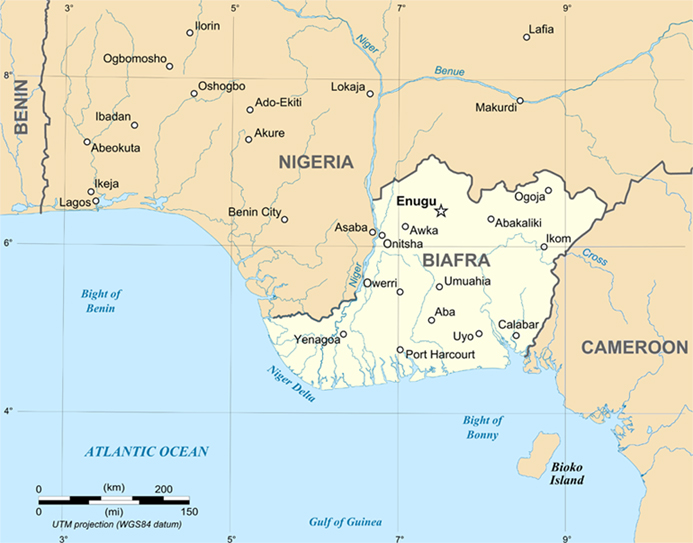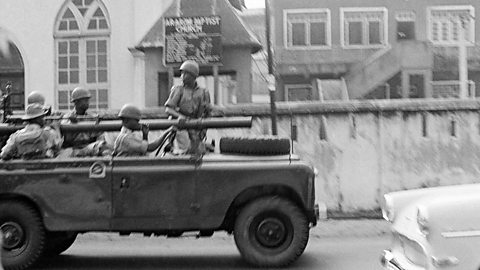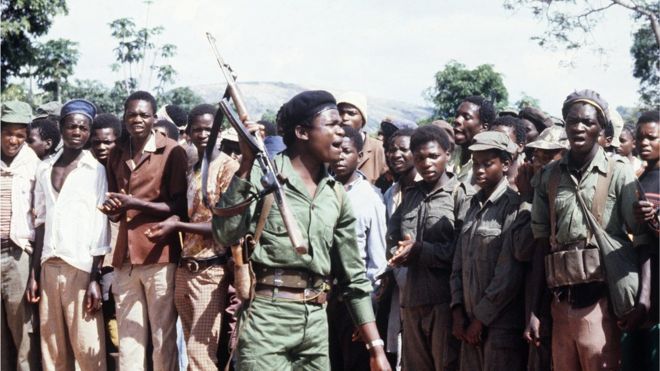
Hello everyone! I have decided to run a character role-playing game set in an alternate timeline and in a country that did not exist for long in our time.
The Nigerian Civil War was one of the most brutal and catastrophic civil wars in post-independence Africa. Yet, many people forget that it was a war of secession. The Republic of Biafra, made up of the eastern part of Nigeria, was attempting to split off from Nigeria, and promulgated three years of brutal conflict. In our timeline, Biafra was defeated and reabsorbed into Nigeria, but what if that was not the case? How would an independent Biafra do in our world? Would it become a model for African states to follow, or will it simply fall into the same dark hole of coups, dictators, and stagnation that plagued the majority of African states. The choice will be up to you...
Important Information
1. To join the IRC channel for Building a Nation, go to https://kiwiirc.com/client/irc.theairlock.net/?nick=AirlockWeb|?&theme=cli#theairlock. From there, create a username, and type in "/join #WiR_Main". The IRC channel is for OOC banter, easy communication, etc. Being on IRC is not mandatory but highly encouraged.
2. Due to the nature of the scenario, I wish to state that I will not tolerate under any circumstances material which explicitly goes against the Paradox Forums' rules. I will also not tolerate any actions taken in character for OOC reasons.
3. The game is always open to new players, so feel free to join regardless of where we are at.
Character Sheet
Name:
Date of Birth:
Biography:













